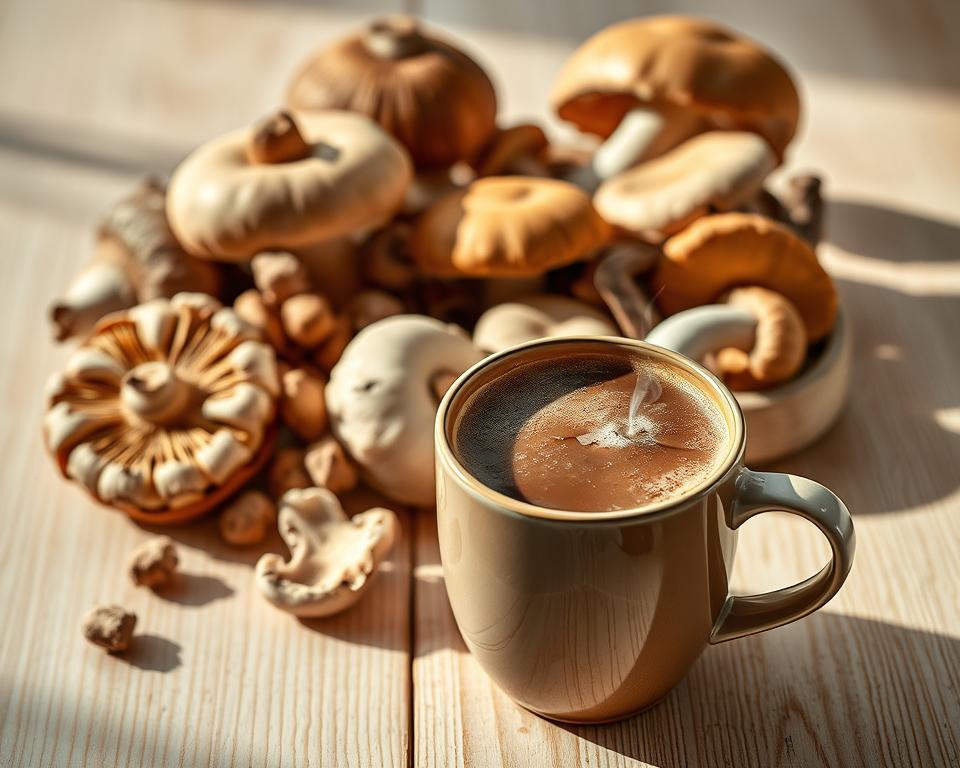Ever thought about how your morning coffee might affect your family plans? It’s interesting to see how science links our daily coffee habits to our reproductive health. Studies show both good and bad sides of caffeine’s impact on fertility.
We’ll look into how caffeine affects our bodies. This might help women thinking about having kids understand its role.
Key Takeaways
- Moderate coffee consumption may not significantly impact fertility.
- Research indicates mixed findings on caffeine and reproductive health.
- High caffeine intake might correlate with miscarriage risks.
- Caffeine’s effects on hormonal balance can influence ovulation.
- Every woman’s response to caffeine can differ.
- Consulting a healthcare provider offers personalized advice for coffee and fertility.
The Role of Caffeine in Female Reproductive Health
Caffeine is a big part of our lives, helping us fight off tiredness. It’s a stimulant that makes us feel more alert and focused. Many women, in particular, enjoy its effects, often drinking more than one strong cup of coffee a day.
This regular caffeine intake affects our bodies in many ways. But its impact on reproductive health is something we need to look at closely.
Understanding Caffeine as a Central Nervous System Stimulant
Caffeine works by blocking a chemical that makes us sleepy. This leads to more dopamine and serotonin, which can make us feel happier and more energetic. While it might help us get through busy days, it can also affect our hormones.
For women, this is important to know, as it could affect their fertility.
Daily Caffeine Consumption Patterns among Women
Many women start their day with a cup of coffee, relying on caffeine to wake them up. Coffee can boost our productivity and mood. But, it’s key to remember that how much caffeine affects us can vary a lot.
As caffeine becomes a regular part of our lives, it’s natural to wonder how it affects our health. This includes how it might impact our reproductive health.

Coffee and Fertility for Women
The link between coffee and fertility is complex. Women looking for answers face mixed research. Some studies show strong links, while others are less clear. Knowing how caffeine affects conception is key.
Mixed Research Findings on Caffeine’s Impact
Studies on caffeine and fertility show mixed results. Some say too much caffeine can make it harder to get pregnant. A study found that women who drank coffee in moderation had better chances of conceiving.
Yet, these findings need careful consideration. Many studies rely on past data about caffeine use.
Insights from Recent Studies on Conception Rates
New research sheds light on how caffeine affects conception. It shows that the impact can differ from person to person. Some studies find no link, while others suggest too much caffeine can be a problem.
Given these mixed views, women thinking about pregnancy should stay updated. Being aware of their choices is more important than ever.
The Connection between Caffeine and Miscarriage Risks
Looking into caffeine and miscarriage risk, we find important studies. These studies check if too much caffeine can lead to miscarriage. Pregnant women might be more affected by caffeine because their bodies change how they process it.
Studies Highlighting Miscarriage Correlation with High Caffeine Intake
Studies show a worrying link: too much caffeine might increase miscarriage risk. It’s clear that moderation is key. Experts advise pregnant women to limit caffeine, mainly in the first few weeks when risks are higher.
Caffeine’s Slower Metabolism in Pregnancy
Pregnancy changes how the body handles caffeine, making it harder to break it down. This means caffeine stays in the blood longer. Even small amounts can affect the fetus more than they would in non-pregnant women. So, it’s important to know how caffeine affects you during pregnancy.
How Caffeine Affects Egg Quality and Ovulation
Let’s explore how caffeine impacts egg quality and ovulation. Caffeine, a common stimulant, might affect your reproductive health in unexpected ways. It’s important to know how caffeine affects egg quality, which is key for those planning to get pregnant. Hormonal balance is critical for ovulation, and caffeine can disrupt this balance.
Research is ongoing, but it’s clear that our coffee choices can greatly impact our bodies. Understanding this can help us make better choices for our health.
The Influence of Caffeine on Hormonal Balance
Studies show that caffeine can lead to irregularities in estrogen and progesterone levels. These hormones are key for a regular menstrual cycle and healthy ovulation. When caffeine is in your system, it might change your hormonal balance.
This could harm your ovarian health and reproductive abilities over time. While some women might not notice any effects, it’s important to know how caffeine might affect you.
Inhibiting Egg Maturation: What Science Suggests
Caffeine might also stop eggs from maturing. Research links high caffeine intake to delayed or impaired egg development. This could be a concern for egg quality and viability for future pregnancies.
Thinking about your coffee intake is important, if you’re trying to conceive. Knowing how caffeine affects egg quality can help you make choices that support your reproductive goals.
Recommendations for Women Considering Pregnancy
If you’re thinking about starting a family, it’s key to check your caffeine use. Health experts suggest cutting down to about 200mg a day. This is like drinking two small lattes. It’s seen as a safe amount when trying to get pregnant.
But, if you can’t give up coffee or chocolate, try drinking less. Enjoy smaller portions instead of drinking it every day. This way, you can keep enjoying your favorite drinks while being good to your body.
Starting a family doesn’t have to be scary. Making informed choices is important. By knowing how much coffee is okay when you’re thinking about pregnancy, you’re already taking good steps. It’s about finding a balance and enjoying your coffee, while also looking after your health.




